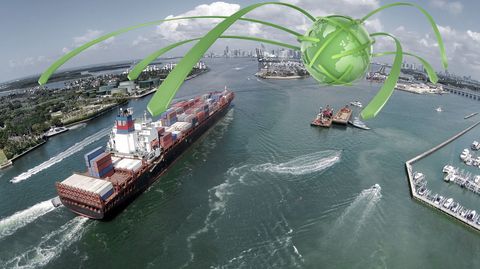The shock election victory of Donald Trump in 2016 has had a number of unexpected consequences on the global political landscape, with trade being one of the sectors that has been affected most directly.
For years, the world has looked to the US as a leader for the globalized trade agenda, and the most prominent champion of multilateral cooperation on major deals, such as the Trans-Pacific Partnership (TPP). However, since President Trump took office, this position has been dramatically reversed, with the new administration adopting a stridently protectionist stance that has caused considerable friction with key allies.
In response to these developments, the not-for-profit organization Bertelsmann Stiftung has carried out an analysis to assess the potential impact this policy of economic isolation could have. The results suggest that the US is at risk of significant financial and strategic losses as a result of this new approach - and that this turn of events should act as a cautionary tale against other nations doing the same.
How has Trump reversed the US commitment to globalization?
The shunning of the global consensus on free trade under President Trump has been swift and vocal. During his election campaign, the outspoken Republican frequently criticized many of the trade deals agreed by his predecessors, suggesting they had resulted in the US experiencing trade deficits with several leading nations, while also losing out on jobs and income.
As such, one of his first acts as president was to pull the US out of TPP - the 12-country free trade agreement (FTA) that Barack Obama spent many years trying to secure - while his government has also commenced a renegotiation of the North American Free Trade Agreement (NAFTA) with Mexico and Canada, and has suggested that the same may happen with the US's FTA with South Korea.
What effects could this on US trade performance?
According to Bertelsmann Stiftung, this so-called "America First" trade policy may not deliver the economic benefits that the Trump administration is aiming for, however.
The organization's projections indicate that in a worst-case scenario, annual US economic output could drop by 2.3 per cent - equivalent to a loss of $415 billion (€348.35 billion) in GDP. The effort to renegotiate NAFTA, designed to secure terms more favorable to the US, could end up being a key contributor to this downturn, as the report suggests that real per capita income in the US would fall by around 0.2 per cent - and 1.5 per cent in Canada - if the new-look deal ends up reintroducing trade barriers that the current version abolished.
It was also predicted that any US decision to increase both tariff and nontariff trade barriers for imports from the rest of the world by around 20 per cent would result in American exports to those countries falling by 40 to 50 per cent, resulting in a long-term annual income loss of 1.4 per cent and a GDP impact of $250 billion.
Could other countries be affected?
One of the key concerns arising from these trends is the worry that any retreat by the US into economic insularity could result in knock-on effects for the rest of the world. According to Bertelsmann Stiftung, the most likely way this fear would be realized is if other countries choose to follow in President Trump's protectionist footsteps.
Should other nations also increase their tariffs and nontariff restrictions against US products by 20 per cent, the drop in US imports would likely stand between 50 and 60 per cent, rising higher than 70 per cent in some countries. This, naturally, would bring dire economic repercussions.
However, by maintaining an open approach to trade, it could be possible for other nations to benefit from America's loss. It was suggested, for example, that a decline in trade between the US, Canada and Mexico as a result of the current NAFTA disagreement could result in Germany's annual exports to the US increasing by around 3.2 per cent, or $4.4 billion.
Aart De Geus, chairman and chief executive officer of Bertelsmann Stiftung, said: "Economic isolation involves losses for all trading partners. What we need is a fair trade policy that allows the free exchange of goods and services, and works for the benefit of producers and consumers all over the world."






